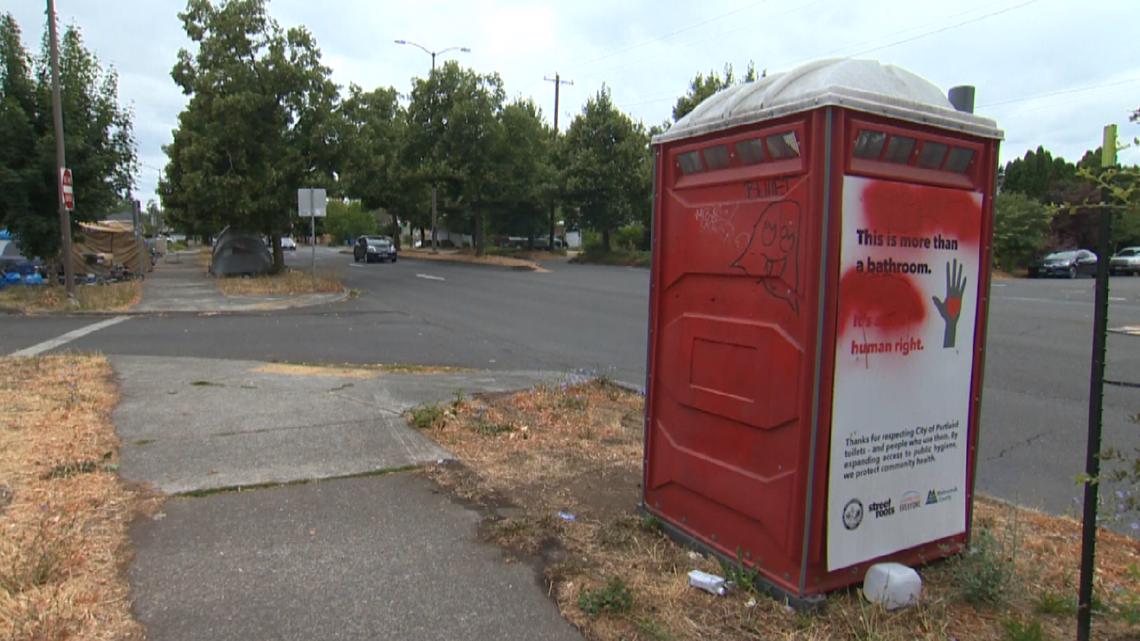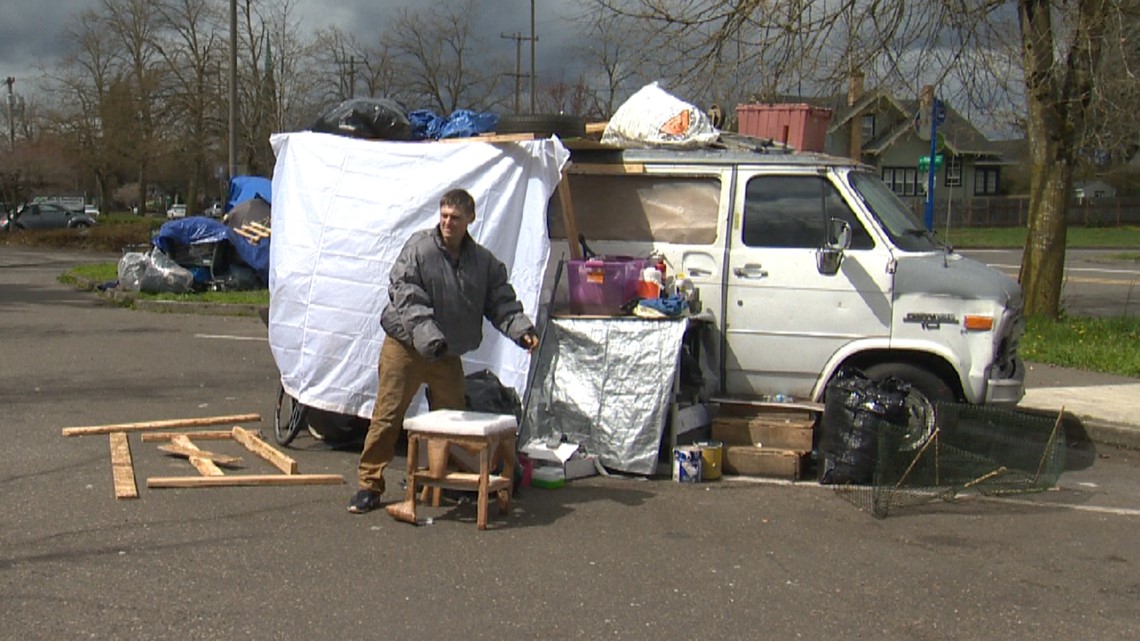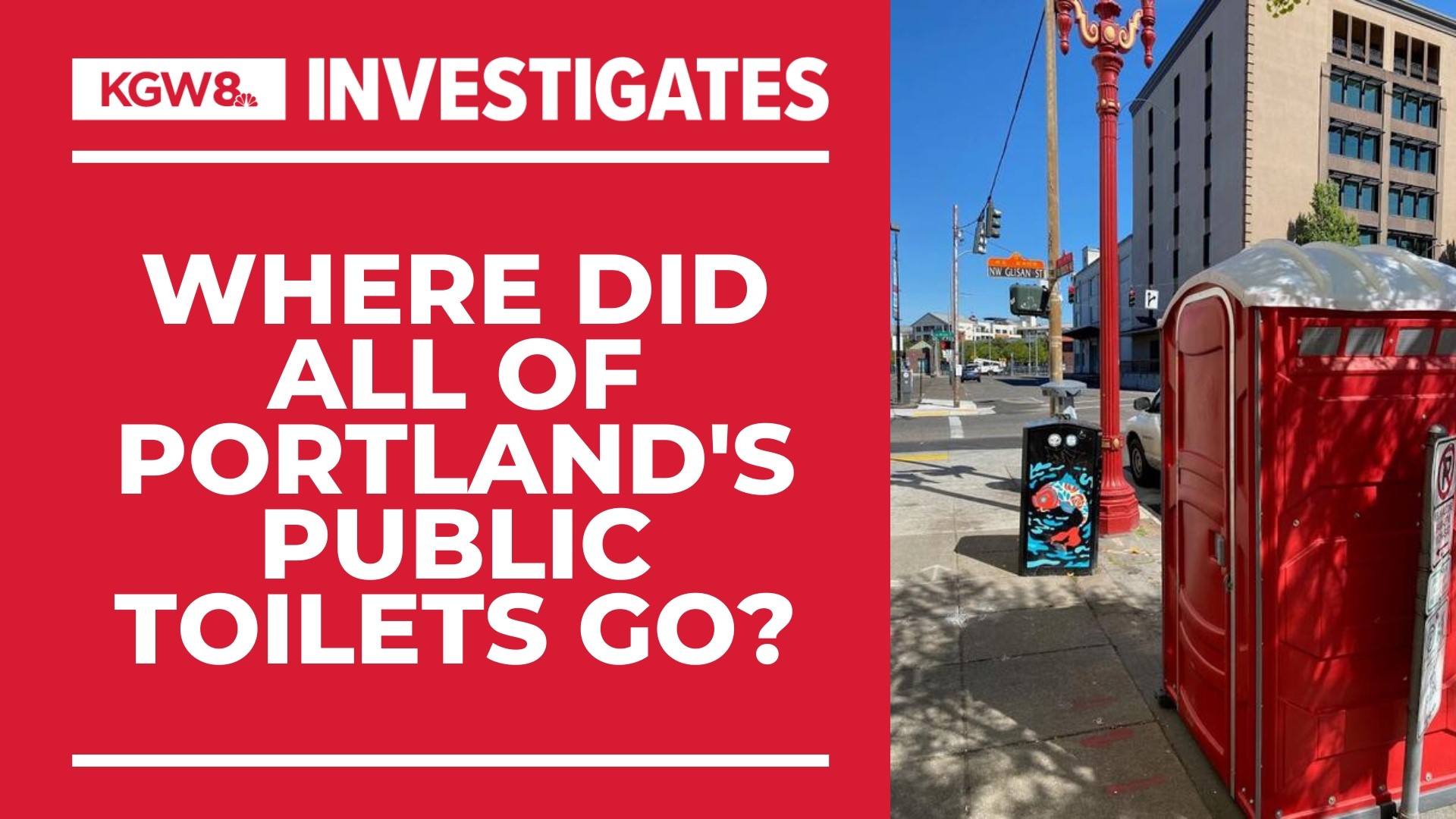PORTLAND, Ore. — The bright red portable toilets were tough to miss. They popped up all across town during the height of the COVID-19 pandemic, seemingly out of nowhere — in parks, on streets and along sidewalks.
Starting in September 2020, city of Portland employees put out roughly 130 red portable toilets to help people experiencing homelessness have access to clean restrooms during the pandemic.
At the time, strict COVID-19 protocols eliminated places were people living outside normally used the restroom. The pilot project generated backlash from neighbors upset about the placement of the red port-a-potties.
In the first few months, city officials admitted, every single unit had been vandalized or damaged in some way. The program cost the city an average of $75,000 per month.
So, what happened to those portable toilets?
Nearly three years later, most of the bright red port-a-potties are gone. The city had them removed.
“The majority of those portable toilets are being taken off the streets due to a lack of funding and vandalism. There’s approximately 16 or so left now,” Mila Mimica, spokeswoman for the city’s Community Safety Division, wrote in an email to KGW.


One of those red portable toilets used to stand on the corner of Southeast 57th Avenue and Powell Boulevard.
“It’s definitely something you take for granted. You don’t think about it until it’s gone,” said Nathan Selland, who lives in a van nearby.
Selland explained he often rides his bicycle looking for a construction site with an unlocked portable toilet, but that’s not always an option. Sometimes he uses the bushes to relieve himself.
“Everyone who’s got to use the bathroom is going to find a way to go,” said Selland. “It’s gross, but you’ve got to figure something out.”
Selland is in the process of building his own outdoor toilet. He cut a hole in a piece of white, plastic foam that will sit on top of a five-gallon bucket. He’s also constructing a temporary wooden enclosure with a curtain, specifically for a female friend.
“She needs her privacy,” Selland explained.


Open urination and defecation in and around homeless encampments pose a risk to public health and the environment. A lack of a bathroom can also erode a person’s sense of dignity.
“The port-a-potty is very, very, very, very important out here,” said Nancy Mottaz, another homeless resident.
Currently, Portland's homeless people have extremely limited options for public restrooms — especially at night. Many businesses lock their restrooms and only allow paying customers to use them.
During the pandemic, the city of Portland kept 54 park restrooms open all hours of the day, but not anymore. Portland Parks & Recreation has gone back to pre-pandemic operations, explained parks spokesperson Mark Alejos. The city closes park restrooms during overnight hours.
In addition to the 16 port-a-potties, there are 19 Portland Loos — the steel standalone bathrooms. In all, there are now just 35 city-funded restrooms in Portland with 24-hour, year-round access.
“If we had more of them, it would be better,” said Wyndi Doss, an unsheltered Portland resident.
The United Nations standards for long-term refugee camps indicate there should be at least one toilet for every 20 people. If you apply those standards to Portland’s growing unsheltered homeless population, it requires 153 toilets citywide.
Moving forward, the city of Portland plans to have 20 to 25 portable toilets, according to a spokesperson. That’s nowhere near the original pilot project, which placed nearly 130 bright red port-a-potties across the city.
“It's one of the bigger struggles out here,” Selland said. "Where do you go?"
This is the first in series of reports looking back at various proposals aimed at providing shelter, housing and support for Portland’s homeless. KGW is tracking what kind of progress has been made. Are there any projects, big or small, that left you wondering, “What ever happened?” Email investigative reporter Kyle Iboshi with your story ideas at kiboshi@kgw.com

